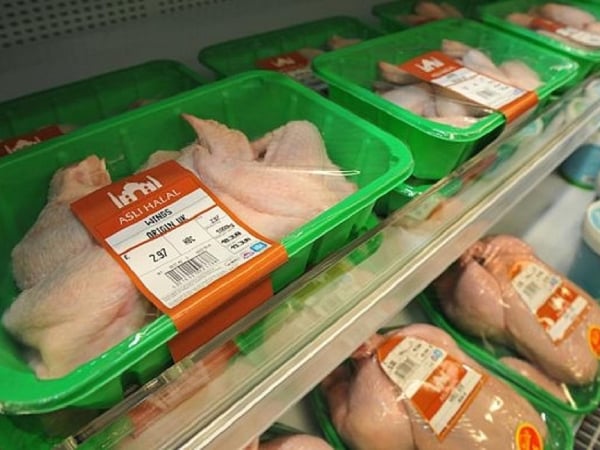-
482 inspections conducted across 38 districts
-
600 companies selling products after getting halal certificates from non-government bodies

Clarifying that meat items are exempted from the ban on halal-certified products in Uttar Pradesh, officials of the state’s Food and Safety Department on Thursday said that 2,275 kg of food products have been seized from across 38 districts and as many as 482 business establishments were inspected since the ban came into force three days ago.
Speaking with The Indian Express, Uttar Pradesh Food Safety and Drug Administration Commissioner Anita Singh said, “Our field units conducted inspections and raids in 38 districts. A total of 482 inspections were done, and 97 raids were conducted by our field units in 38 districts. While inspections were random, the raids were conducted on specific information. We have seized 2,275 kg of food products which were found to be halal-certified. These products included things like pasta, sewai, mint, pulses, salt, etc. We have seized the food products and will instruct the retailers and manufacturers to relabel them. Most of the seizures happened in Agra, Mainpuri, Ayodhya, Gorakhpur, Ambedkar Nagar, and Moradabad districts.”
“We have also sent 83 products for testing suspecting they were adulterated,” she said.
Join Campaign : Join Hindu Janajagruti Samiti’s Anti Halal-imposition campaign
Singh said the ban excludes products meant for export and meat items. “It was found that some organisations that weren’t equipped to issue halal certificates were doing so. The certificates were being given to all kinds of products like edible oil, mint, rice, and bakery products. We found this to be against the rules, and hence, the ban was imposed,” she said.
The announcement to ban halal-certified products came on Sunday — a day after police in Lucknow booked a company and three organisations for providing “illegal halal certificates” to products sold in the state. The FIR named “other unidentified manufacturing companies and their owners, people part of the anti-national conspiracy and people funding terror outfits”.
An official at the Uttar Pradesh Food Safety and Drug Administration office said, “It was found that more than 600 companies were selling products in the domestic market after getting halal certificates from these non-government bodies like the Halal Trust of India, and others. There is a scheme of the central government called India Conformity Assessment Schemes (i-CAS) under which an organisation can apply for a permit to give halal certificates. The National Accreditation Board for Certification Bodies (NABCB) gives authority under the i-CAS scheme to organisations to give such certificates for halal products. However, many organisations were doing it without obtaining the required permit to give halal certificates. This is primarily for export products. The objective is to regulate the whole process of giving halal certificates.”
Meanwhile, the UP Special Task Force Thursday continued with its probe into an FIR lodged in Lucknow in connection with the sale of halal-certified products on Saturday. A company and three outfits were booked for allegedly providing “illegal halal certificates” to products sold in the state. The FIR was registered on the complaint of a BJP’s youth wing member, claiming that “some companies have started certifying products as halal to increase their sale among a community”.
Source : Indian Express

 Shiv Sena leader demands action against Bigg Boss OTT 3 over ‘obscene’ content
Shiv Sena leader demands action against Bigg Boss OTT 3 over ‘obscene’ content Conduct a thorough enquiry of individuals coming to Vishalgad Fort from Hyderabad involved in distributing money to the local Muslims : Ramesh Shinde, HJS
Conduct a thorough enquiry of individuals coming to Vishalgad Fort from Hyderabad involved in distributing money to the local Muslims : Ramesh Shinde, HJS Kanwar Yatra: SC stays U.P., Uttarakhand directives to display names of food stall owners and staff en route
Kanwar Yatra: SC stays U.P., Uttarakhand directives to display names of food stall owners and staff en route The Bombay HC orders stay on removal of encroachments at Vishalgad (Kolhapur)
The Bombay HC orders stay on removal of encroachments at Vishalgad (Kolhapur) No one will be treated unfairly; all encroachments on Vishalgad will be removed – Maharashtra CM’s Assurance
No one will be treated unfairly; all encroachments on Vishalgad will be removed – Maharashtra CM’s Assurance Temple traditions cannot be changed without the consent of Chief Priest : Kerala HC
Temple traditions cannot be changed without the consent of Chief Priest : Kerala HC